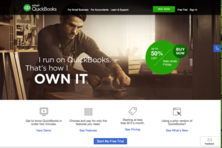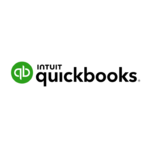Accounting software solutions for the self-employed are effective tools for managing the financial aspects of freelance work—including invoices, bills and financial reports. Accounting solutions are essential for those who don’t have ties to any existing companies and don’t have their own finance department. Since finance can be a difficult, time-consuming task to manage due to the countless arrays of numbers and calculations, it’s easy to make mistakes when the processes are done manually. Since self-employed people are the sole proprietors, they still have responsibilities to fulfill, especially if they have people working with them. This makes accounting software cost-effective investments for these entrepreneurs.
With accounting software, managing your own financials is made easier. Integrated features assist in invoicing, bank transactions, multi-currency accounting and more. This makes it easier for the self-employed or freelancers to focus on their current projects without worrying about their bookkeeping. This also allows them to work efficiently on their tasks since accounting solutions come with other features such as time and mileage tracking.
When it comes to accounting software, four main types exist in the current market. They are as follows:
A handful of accounting software solutions are available for you to peruse, with most being offered as cloud-based solutions. They differ according to their integrated features and prices. Most also have free trials for you to check and compare. Some are a perfect fit for large enterprises while others are mostly beneficial for the self-employed. QuickBooks is one such example.
Overall, with self-employed people working under their own jurisdiction, it can be difficult to manage their own accounting. The task of reminding customers of their due payments and paying bills with the added tax time can prove challenging for employed individuals. It gets more difficult if you don’t have any background in accounting. But, with accounting software solutions, these problems can be more easily managed.

 QuickBooks is a popular accounting solution that helps self-employed users to create, send and track invoices from any location, as well as automate tax preparation and easily stay on top of finances.
QuickBooks is a popular accounting solution that helps self-employed users to create, send and track invoices from any location, as well as automate tax preparation and easily stay on top of finances.
Accounting software is used by the self-employed to handle their bookkeeping tasks. These tasks range from creating invoices to managing several accounts. Since small business owners are always on the go, they rarely have time to sit down and keep up with their expenses. In order to avoid falling back on important paperwork, they often require technology as a solution. This is where cloud-based accounting software comes in—complete with up-to-date developments in mechanics to address your financial needs.
QuickBooks, a web-based accounting software, is designed specifically for self-employed accountants and small business owners. It offers features that aid in bank reconciliation, expense tracking, monitoring financial reports and many more, with a starting price that begins at 10.00$ per month or user.
As such, most people seek software solutions with the following integrated features:
Accounting capabilities help to generate accurate reports and documents as well as prove compliance in all factors related to financing. This feature is also in charge of bank reconciliation and tax filing. What this does is it makes sure balance sheets, journal entries, chart of accounts, etc. are accurate and error-free.
This feature is useful in reminding customers of their payment deadlines and creating your own specific invoices. With the customization tools, you are free to create and customize invoices according to your preferences. However, if you’re not a designer, you can easily choose from existing templates. Furthermore, this feature makes it easier for people to pay their dues as it integrates with several banks, giving the customers more payment options.
In order to prepare the budget next year, most accounting solutions have demand forecasting in their package. This feature basically analyzes the current performance of your business this year and estimates the expected budget next year. This is done through a series of steps to ensure you’ll make optimized and well-informed decisions.
Payroll management helps in processing employee salaries with consideration to all legal and tax commitments. It ensures no errors and delays are made compensating workers. What this feature also does is making sure you’re always able to submit annual tax returns when necessary. Since you’re the sole proprietor of a small business, managing the salaries of employees can prove difficult without the right accounting tools.
Working with your own schedule can be difficult, as you need to learn to effectively manage your time when doing certain projects. In the case of freelancers and the self-employed, time is money. Without accounting software, the time you spend working on your financials could’ve easily been spent on completing tasks for clients.
With this being said, accounting software for the self-employed allows for flexibility and scalability. It saves time, provides access from any device and simplifies communication between you and the client. Asides from that, here are the main benefits self-employed individuals can get from accounting software:
Having automated processes can help save time, especially if you’re dealing with multiple projects at once. The need to manually input information is eliminated entirely, which reduces the risk of human error. Furthermore, automation means simplified work. You no longer have to worry about miscalculations or accounting details since the software solution is equipped to deal with it for you.
Since most software solutions come in a cloud-based format, it allows for quick and easy set-up. Furthermore, you don’t have to worry about maintaining and updating it since the software vendor handles it for you. It is noteworthy to point out that self-employed individuals don’t require technical expertise to navigate the site. Most software solutions offer easy-to-understand interfaces with a simple dashboard to show all reports and task delegation.
Self-employed individuals are naturally busy, often meeting up with clients and finishing projects on set deadlines. With accounting software, however, you can have frequent updates and notifications sent to your phone. Since it’s integrated with your mobile device, you don’t have to worry about missing important deadlines or calls from your clients.
Synchronization allows you to be connected to several of your bank accounts. This means having automation in terms of bank transactions, customer payments and other financial reconcilements. It becomes easier to adhere to deadlines and for customers to send in their dues. Most software solutions also have multilingual options, which can be especially useful for businesses that have international clients.
Overall, accounting software solutions are integral systems to have for freelancers and other self-employed workers. As people who don’t have a strict schedule to follow or an office to clock in, it can be challenging to maintain self-discipline. However, it is necessary when you’re self-employed. When working with companies, all the administrative tasks are taken care of by the superiors. But since you’re working alone or with a small team, these tasks cannot be avoided. With the help of accounting solutions, however, sending invoices, paying bills and tracking time has never been easier.